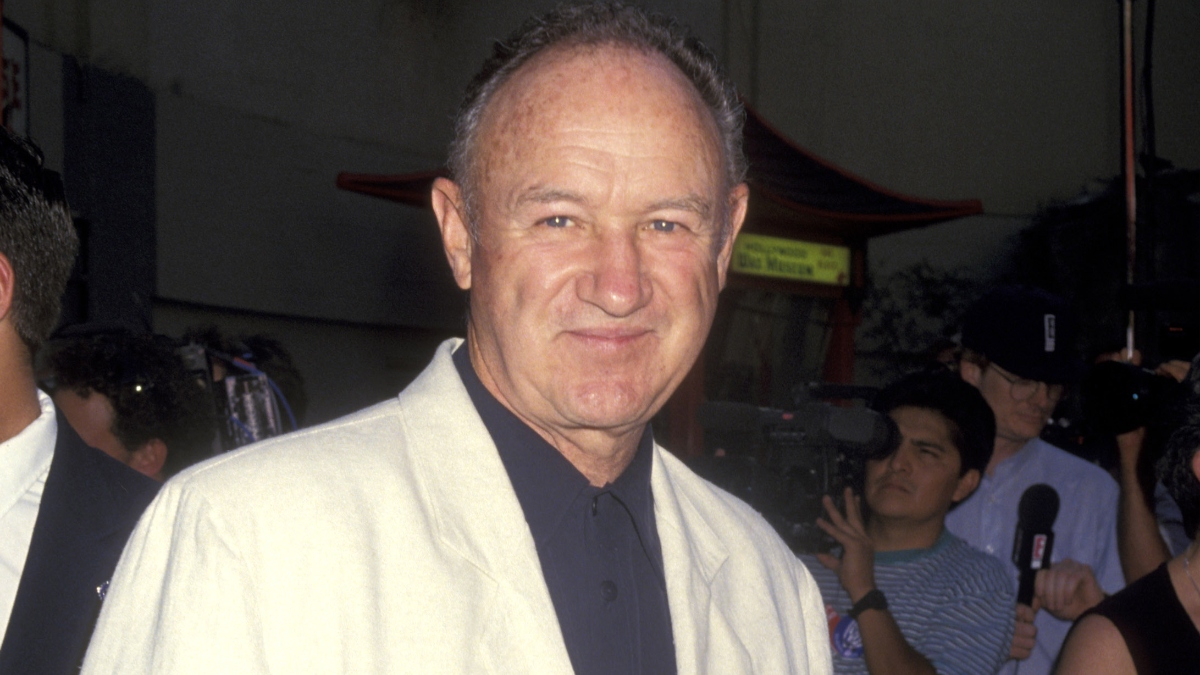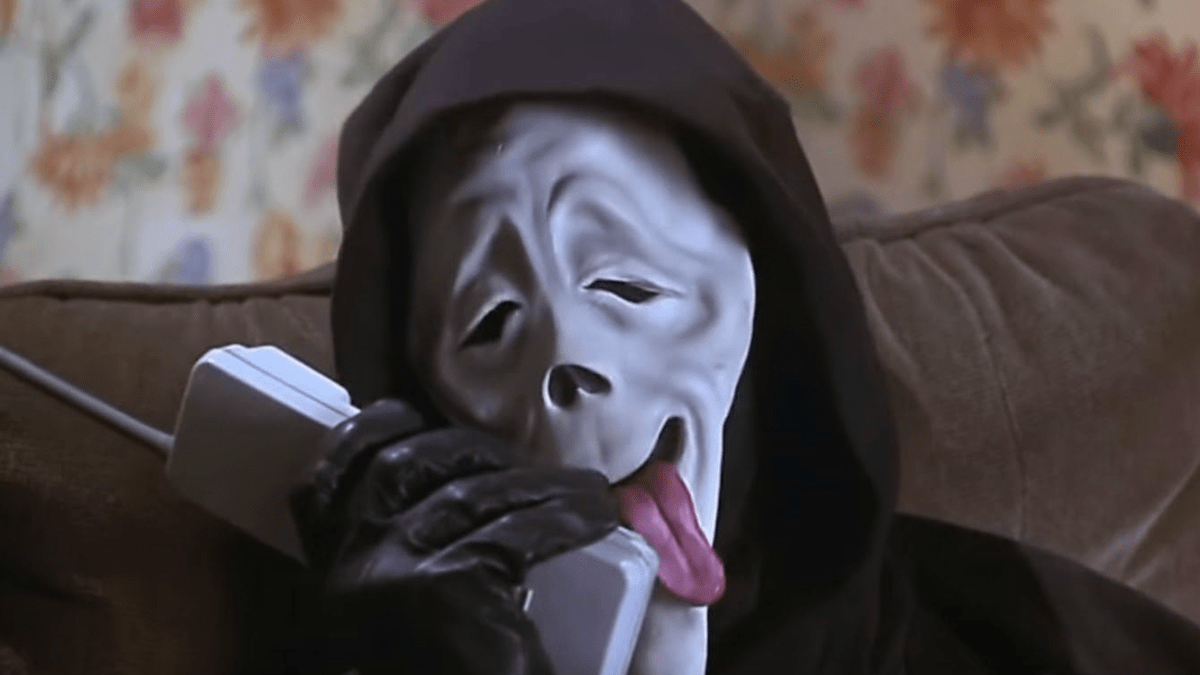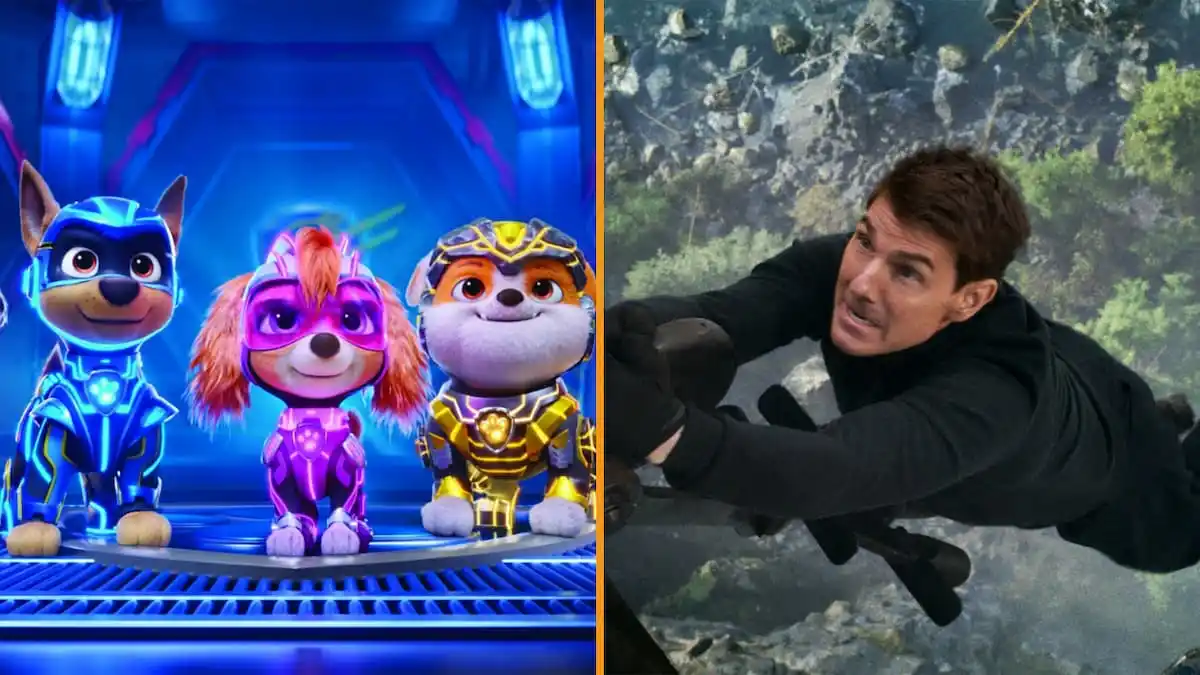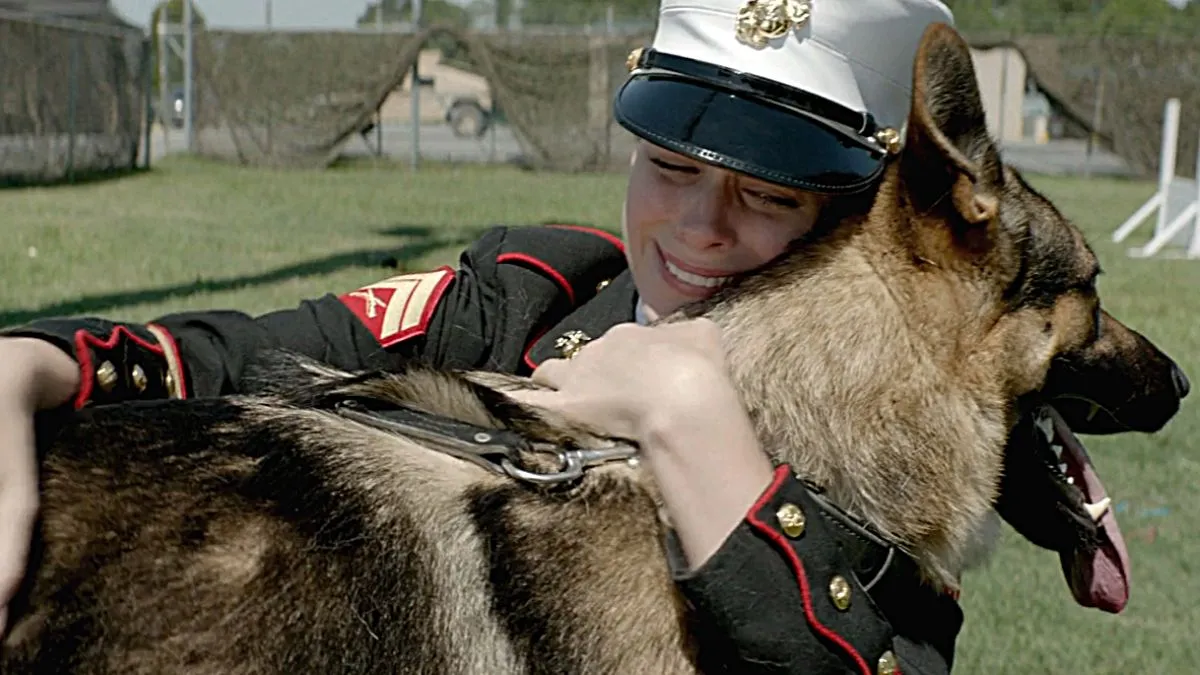Academy Award-winning director Errol Morris is currently on the festival circuit with his new film Tabloid, about a former Ms. Wyoming who may or may not have kidnapped a Mormon missionary, chained him up in a ‘love cottage’ for three days and raped him. At least that is one version of the story out of many. What I do know is that I couldn’t be more excited about Tabloid.
Recently, Mr. Morris sat down with me at Hotel Huntington in San Francisco and let me pick his brain about the project. His long time collaborator and producer of the film, Julie Bilson Ahlberg, was also in attendance. Check it out below.
We Got This Covered: Thanks for talking with me today, guys. I really, really enjoyed your film. From the second I started watching it, I just kept thinking, are you kidding me?
Errol Morris: That’s a perfect way to put it. It’s an ‘are-you-kidding-me movie.’
WGTC: The film was doubly interesting to me since I once, long ago, served as a missionary for the Mormon church. How did you find Joyce McKinney’s story and what made you want to make a movie about it?
EM: We were talking about this very issue earlier today. I think I have a good sense for a story that is going to lead somewhere strange. This was unexpected. I like non-fiction, to the extent I like it. And I’m not sure I do like it. But let’s say if I do like it, why I might like it. I like it because you don’t know where you’re going. Properly considered, you don’t know what your story is at the outset. I’ve often thought, if I know what the story is, if I know what I’m going to hear, well, why bother? Just do something else. I read an article in the Boston Globe–I live in Cambridge Massachussetts–about the dog cloning.
WGTC: That was a fantastic end to the film, by the way.
EM: Well, that was the beginning for me. I put it at the end, but started with it. So I read this article and I think, this is fucked up. And it mentioned in passing the fact she had been involved in this twenty plus year old ‘sex and chains’ story. I really like concatenation, the combination of two disparate elements in a story. I did this movie about this electric chair repairman and holocaust denier. Would I have done it if it was just about an electric chair repairman? Probably not. Would I have done it had he just been a holocaust denier? Definitely not.
WGTC: Could you give a little bit of background surrounding Joyce and what happened for those that haven’t been able to see the film yet?
EM: If I really know what the story is! Part of the story here is the story is a little, not confused, but it’s not at all clear who to believe about what. At the heart of it, there is great uncertainty about what transpired, particularly in the ‘love cottage.’ Joyce falls in love with a young Mormon. His parents didn’t approve of her, they break up. He is sent to England for his missionary work for the church. She pursues him with a gang of people. And, depending on who you believe, she kidnaps him and takes him to a love cottage in Devon, and proceeds to have her way with him. Depending on who you believe.
WGTC: These terms you’re using, ‘the love cottage,’ and ‘sex and chains,’ are these actual terms from the actual tabloid stories when this was being covered in the media?
EM: Indeed they are. I wish I was creative enough to come up with those terms. How can you go wrong with ‘the love cottage?’ They took him to ‘the love cottage.’
WGTC: The man Joyce is supposed to have raped, or according to another story, was complicit in the act, his name is Kirk Anderson?
EM: Yes
WGTC: Maybe you can answer this question, Julie. He has been unwilling to speak on the subject at all. Did you approach him?
EM: Yeah, we approached him:
JA: We heard nothing back. We sent letters, we made calls, we left messages. You tell us. Of course he was unwilling, you would know better than us why he wouldn’t be willing to talk on camera.
WGTC: Well, I think you understand the psychology behind it. You interviewed for the documentary a gay, former Mormon missionary, Troy Williams, who was very good at explaining the guilt and anxiety of the Mormon mind. He had it right, there’s some serious… programming there, although I don’t believe Kirk was ever brainwashed. Has he seen the film? Have you sent him a screener?
JA: I would imagine not. But that’s not a bad idea. We are planning on opening in Salt Lake City. Troy Williams is there and is interested in having a big opening, he has people that are very interested in it.
WGTC: In the film, and this has been a pattern from some of your previous films, that’s a lack of reaction to what these people are saying. You kind of leave the story being relayed up to how they see it. Can you talk about the decision not to try and narrow the truth down?
EM: Here’s what’s really interesting about documentaries, and about interviewing in particular. I’ve often thought that interviewing is like a human relationship in a laboratory setting. Something very, very simple. Seemingly simple, but in reality, it’s complex. Why are you doing these things? Why am I doing this things? What’s the purpose of the interview? For a lot of people, it’s a kind of opportunity to show off how smart they are.
How they can ask the difficult questions. How they can back somebody up. How they can force them into contradicting themselves. It becomes a certain type of adversarial performance. I have never liked that. It doesn’t interest me. I like to think that what I do, for better or for worse, and don’t hate me for saying this, is an art form. And I’m a director. People sometimes forget that I’m a director. It’s a movie and I’m directing the movie.
And when I do an interview, part of what I am trying to achieve, for me, as well as for the person I’m interviewing, but for me, is to create a performance on screen. To make that person come alive. To allow them to reveal something about themselves. I think I did, and it’s self-serving to say so, I think I did a great job with Joyce. Joyce comes alive on screen. She’s amazing, it’s an amazing performance. Let’s give credit where credit is due, she is fucking amazing.
JA: Everyone in this movie is.
EM: They’re all good. What is a documentarian if he’s not adversarial? Or if he’s not marrying the whole goddamned deal. Then he’s supposed to be this vessel into which stuff is then poured, he’s supposed to sit there like some human sponge. No, I’m there, trying to get something to happen in front of the camera. To get her to tell the story in a powerful and interesting way. f you want to hear somebody contradicting people and doing the Mike Wallace deal, you have a choice of lots of documentaries. I just don’t think that’s the shtick, that’s not the deal.
WGTC: There were so many great characters in this story. And like you said, Joyce gave an incredible performance. So much so, she kind of convinces at times that she’s not a bit… off. But you also spend a lot of time focusing on the tabloids that covered the story and how they handled it.
EM: Well, I did by virtue of the fact that I interviewed those two tabloid reports, and I had clips of people from that period of time that this all went down.
WGTC: I was interested in the fact there was truth in all the stories the tabloids reported. But they had completely differing stories, there was the one of the virgin, and the one of the whore. Can you talk a bit about that ongoing dichotomy in the film?
EM: It’s one of the most interesting parts of the film, one of those classic dichotomies: the virgin and the whore. And they played it out in enormous detail. It’s interesting, it seems to me what I’m writing about these days, on one hand, we know there’s a world out there where things happen. On some sort of simple level, she raped him or she didn’t. He was a willing participant, or he wasn’t. Will I ever be able to establish whether it was A or B? I don’t know. I’d say the odds are probably against it. But we also know that people, despite what happens in the world, people want to be believe things.
There’s an enormous pressure to believe one thing or another. Joyce wants to see herself as a certain kind of heroin, who is, in part, telling a story. Everybody, and this is what’s interesting about people and interviews, everybody is narrating a story about themselves. About how they see themselves, about how they imagine themselves. How they see the world, and how they in turn would like to be seen. The movie tries to powerfully capture that. Ultimately, if this is just a movie about whether Kirk was a willing guest at the love cottage, it would become, I think, not so interesting. I think that feeling of this push and pull between what people want to believe, what they imagine in reality. That is what makes it a compelling story.
JA: Not to mention what Tabloids can and do everyday with that.
EM: Well, tabloids give us something that we want. I mean they give us stories that are simple, powerful, weird.
WGTC: It’s a powerful mythology in our culture, it’s almost like it’s reporting on something that doesn’t exist. It’s pulp fiction almost, based most often on very thin truths.
EM: Obviously the tabloids can misrepresent a story. But it’s not that the truth is thin or thick. The truth is, what happens may or may not be unknowable. People die, people talk, and you may never be able to answer certain questions. There are certain things we do know about Joyce’s story. We know she was arrested for stalking him. We know the outlines of the story. And then we hear the outline of the story and we hear people tell us their opinions of things that we can’t really buttress with documents and facts. And that’s where the interest lies. Here’s my idea of what makes a great documentary.
When you capture the complexity of the world, or the complexity of a story, or the complexity of the people in the story, if you’ve done that, you’re ahead of the game. The more complicated the story, the happier I am, within reason. If it can’t scan for an audience, then it’s become unintelligible. And that’s no damn good. But it’s the complexity of this whole deal. And the sadness of it that’s also really powerful and interesting.
WGTC: I read that you’ve compared Joyce’s story to the Aeneid. I thought it was a very interesting comparison. Can you discuss briefly the parallels you’ve drawn there?
EM: I got annoyed that you release a movie and people are going to say things about you’d wish they wouldn’t say, or that you don’t like. One of the things I would heartily object to, is the idea because Joyce McKinney is not the Secretary of State, or the Secretary of Defense that it’s a light story. That somehow it lacks gravitas because it doesn’t have this great world historic moment. I beg to differ. This story is as complex as any of them. Even though it emerges from a traditional tabloid study, it’s still a fabulous story. She nailed it.
We had trouble with this in the editing. Because in the early cuts, we liked the love cottage story or we liked the dog cloning story, but we don’t see what the dog cloning and the love cottage have to do with each other. Why are these two things in the same movie. Well they’re in the same movie because of Joyce McKinney, quite simply. And she comes up with this line, and more power to her, where she herself says, I don’t see the connection. I don’t see the connection between a thirty two year old sex and chains story and dog cloning. But if the movie works, we do see the connection.
Someone said to me, we had a Q&A after a screening in LA, and I was asking the audience whether they saw a connection, and one woman who was in the front row said, it’s that line, we’re pregnant! She finally got pregnant. And she finally got pregnant in a way that I would consider to be a truly, truly bizarre way. If you’re talking immaculate conception is bizarre, try this on for size.
That concludes our interview but we’d like to thank Errol, and Julie for taking the time to do this interview. Watch for Tabloid to come to a theatre near you, I personally guarantee it will be money well spent.









